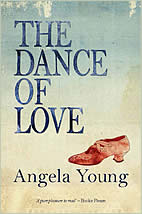At this time of year I often post about RMS Titanic.
Last year’s post remembered the Welsh Able Seaman, Thomas Jones, who captained Lifeboat Number 8 – the lifeboat that carried my great-grandmother, Noël Rothes, and twenty-four others to safety on the terrifying night when Titanic sank.
 But when I was invited by Fred Olsen Cruise Lines to do my Titanic talk on board the Borealis this month, I didn’t think I’d be posting about it because I didn’t think I’d be doing the talk. If I was a passenger on a ship, I wouldn’t want to hear about another ship that sank with the loss of more than 1,500 lives, while I was sailing.
But when I was invited by Fred Olsen Cruise Lines to do my Titanic talk on board the Borealis this month, I didn’t think I’d be posting about it because I didn’t think I’d be doing the talk. If I was a passenger on a ship, I wouldn’t want to hear about another ship that sank with the loss of more than 1,500 lives, while I was sailing.
But I was wrong.
The Borealis’s first port of call was Belfast and many passengers planned to visit Titanic Belfast while they were there. Just as many came to hear my talk the day before we arrived.
It was confirmation of what I’ve realised over the years I’ve done this talk: many other liners have sunk and many people have died as a result, but the reason the Titanic disaster looms so large in our memories and people want to hear about it again and again and again, is that it’s a perfect storm of arrogance (on the part of the White Star Line management, Titanic’s owners, who believed Titanic’s design could withstand collisions and couldn’t sink); complacency (of the White Star Line Chairman, Bruce Ismay, who dismissed a boat-deck design that would have carried enough lifeboats. He said the extra lifeboats would, ‘Clutter up the beautiful open expanse of the upper deck where first-class passengers would want to stroll’); carelessness (with which passengers, particularly third-class passengers, were treated: there was never a safety drill so, after Titanic hit the iceberg, third-class passengers – who’d been kept locked down in their quarters to comply with an American immigration law – didn’t know their way up to the boat deck, and many of them were emigrants so they didn’t speak English well enough to understand what they were being asked to do); and hubris (how dare a shipping line declare its liners unsinkable? And what on earth made other shipping lines, whose ships could have come to Titanic’s rescue, think closing their brand new Marconi (radio) rooms at 11.30pm was a good idea? Titanic hit the iceberg at 11.40pm).
No Titanic passenger was immune from the White-Star-Line-created perfect storm: the unimaginably rich died beside emigrants travelling to America full of hope for a better life; teachers died beside stokers; engineers beside cabin stewards. And the vast majority of the 1,500-plus people who died were men, 1,350-plus of them: men who’d been asked to stand back so that the women and children could board the far-too-few lifeboats first.
‘They were brave men all,’ as my great-grandmother said, ‘who stood back so that the women should have a chance to live. Their memories should be held sacred in the mind of the world forever.’
Titanic had approximately 2,240 people on board and 16 lifeboats that could hold 1,178 human beings. Borealis had around 1,995 people on board and 16 lifeboats that can hold 2,400 human beings. As they say, do the math.
A master mariner commented, after my talk on board Borealis, that the fact that the White Star Line calculated the number of lifeboats Titanic should carry based on the tonnage (10,000 tons) written into law at the time, instead of Titanic’s actual tonnage (46,000 tons) was arrogance personified. If they’d used her actual tonnage they’d have carried enough lifeboats for every single person on board.
I could go on, but I won’t.
The only good thing that emerged from the tragically high and absolutely avoidable number of deaths, was that Maritime Law was changed very soon after Titanic sank. This means that the mortal sins committed by Titanic’s owners (and other shipping lines) can no longer be committed, without breaking the law and facing prosecution.










What an extraordinary event it must have been to have given your talk
while at sea – dramatic and your audience must have been captivated by your analysis of that fateful night.
Thank you, Caroline. It was strange – but very well-received.